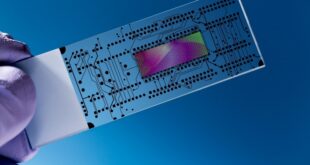The first ‘Carbon Literate’ engineering students in the world have successfully completed their training at Manchester Metropolitan University.
Carbon Literacy is an awareness of climate change and knowledge of the ‘green’ actions we can take to keep the planet healthy – and the next generation of engineers will play a significant part in determining the future of the environment.
Second year undergraduate students from Manchester Metropolitan’s Product Design and Technology BSc and Design Engineering BSc courses took part in the special training, which was embedded into their overall teaching.
The training was delivered by the Carbon Literacy Project, based at the University’s Innospace business hub.
The project is globally unique and no other engineering students on the planet have been previously certified as Carbon Literate.
Carbon Literacy has been embedded in a range of courses in different faculties at Manchester Metropolitan, including Science and Engineering (Environmental Science, Environmental Design), Health, Psychology and Social Care (Nutrition), Arts and Humanities (Sociology) and Business and Law (Responsible Enterprise).
Carbon literacy training
The Product Design and Technology BSc and Design Engineering BSc students were introduced to the impacts of their carbon footprints, and discussed the ways in which they as individuals – and as a group of future engineers – can minimise that impact.

In three workshops, each lasting three hours, the students explored the wider issues around climate change, and devised ways in which they might use their training and expertise to halt it.
For example, they developed a concept design for a sustainable, green product that could be used after a natural disaster, and they came up with ideas on how engineers can lessen the environmental impact of the rescue operation.
The students will graduate from their Carbon Literacy training at a ceremony in January 2019.
Sarah Scholes-Lawrence is studying Product Design and Technology, and took part in the training. She said: “I found the training to be interesting and eye-opening, showing different parts of the environmental crisis that potentially I hadn’t considered, and offering solutions of how I can reduce my carbon footprint.
“This course has equipped me with the knowledge and insight about the environment that I can directly apply to my future career, helping me to be at the forefront of environmental innovation.”
Haydn Insley, Pathway Leader for Design Engineering at Manchester Metropolitan University’s School of Engineering, said: “Manchester Metropolitan’s School of Engineering is passionate about developing the engineers and designers of the future, who can respond to the grand engineering challenges of an ever-changing world.
“We believe we must lead and inspire future generations in developing new products which provide for a sustainable planet and a positive future for mankind. We’re very happy to be the first in the world to embed this course within our teaching, and would hope more institutions will follow our lead.
“All major engineering employers take climate change seriously, so equipping our students with a unique educational asset such as Carbon Literacy will leave them with an advantage in the world of work.”
Phil Korbel, co-founder of the Carbon Literacy Project, said: “We congratulate the university on implementing our unique learning framework in yet another new field. There is no area of study to which climate change is irrelevant, and it’s our future engineers and designers who will be inventing and implementing many of the technical solutions to this existential crisis.
“Manchester Met’s new cohort of Carbon Literate students will now have a carbon instinct to take into the workplace and play a leading role in creating a safer future for themselves and their children.”
 Engineer News Network The ultimate online news and information resource for today’s engineer
Engineer News Network The ultimate online news and information resource for today’s engineer



